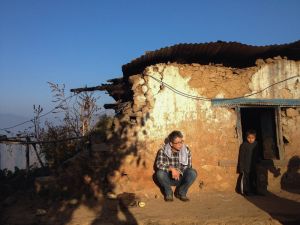Greetings from the Director of the KINDOWS
Center for Indian Ocean World Studies at Kyoto University will explore, under the theme of “Peaceful Coexistence” while adopting a wide-ranging interdisciplinary approach, how people in the Indian Ocean region, where ethnic and religious conflicts frequently occur and economic and social disparities widen, have sought to live together peacefully. The interdisciplinary approach will include concepts and methods derived from anthropology, history, geography, political science, economics, among others, and will critically engage and expand on the interrogations and debates emerging from different area studies traditions including South Asian, African, Southeast Asian and Islamic area studies. The debates to be held will include those related to issues under three headings with deep mutual connections: c) grassroots religious movements, and d) post-capitalism.
In the 18th and 19th centuries, in the era of imperialism, the issue of sovereignty emphasized questions of who had the right to conquer and extract resources from particular territories. In the twentieth century, with the rise of anti-colonial and nationalist struggles, the question of sovereignty became highly contested. It was deeply connected with the question of democratization. In the post-colonial era and with the rise of new nation-states accompanied with projects of national development in the Indian Ocean World, the question of sovereignty was grafted on, among other things, to the question of ethnic and indigenous rights and autonomy. Interrogations of the limits of state power have also given rise to inquiries about distributed and overlapping sovereignties, involving among others, local strongmen, religious authorities, and gangsters. In the face of such complexity on the ground, the state’s attempts at monopolizing the claim to sovereignty have often given rise to large scale conflicts that caused the emergence of refugees, including those from Palestine, Tibet, Cambodia and Myanmar, to name a few.
The figure of refugees, while highlighting difficulties of state sovereignty and territoriality, are the foreground of the changing mobility of people, things, and ideas that transcend state borders. It also urges reconsideration and reconceptualization of economy beyond national development and capitalist growth, both within and beyond national borders, to explore more humane and mutually supportive forms of economic relations.
Institutionally attached to the Graduate School of Asian and African Area Studies (ASAFAS), Kyoto University, the KINDOWS will draw upon the strong and lively traditions of South Asian, Southeast Asian, African and Islamic Area Studies, and aims at expanding debates about post-nation-state and post-capitalist futures and to make important contributions to the development of global area studies.
Project Leader, Center for Indian Ocean World Studies, Kyoto University
Tatsuro Fujikura


